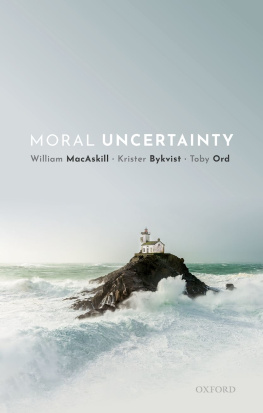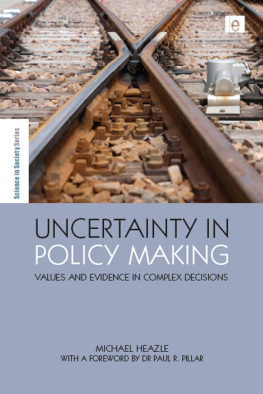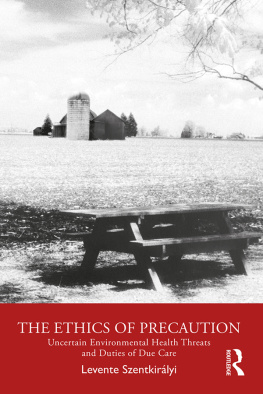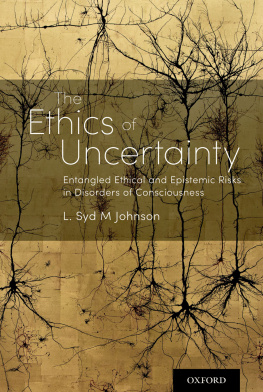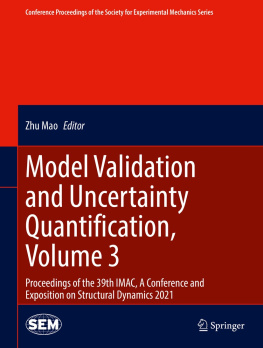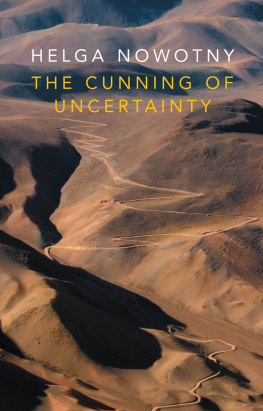Oxford University Press is a department of the University of Oxford. It furthers the Universitys objective of excellence in research, scholarship, and education by publishing worldwide. Oxford is a registered trade mark of Oxford University Press in the UK and in certain other countries
Some rights reserved. No part of this publication may be reproduced, stored in a retrieval system, or transmitted, in any form or by any means, for commercial purposes, without the prior permission in writing of Oxford University Press, or as expressly permitted by law, by licence or under terms agreed with the appropriate reprographics rights organization.
This is an open access publication, available online and distributed under the terms of a Creative Commons Attribution Non Commercial No Derivatives 4.0 International licence (CC BY-NC-ND 4.0), a copy of which is available at http://creativecommons.org/licenses/by-nc-nd/4.0/.
Enquiries concerning reproduction outside the scope of this licence should be sent to the Rights Department, Oxford University Press, at the address above
Clays Ltd, Elcograf S.p.A.
Links to third party websites are provided by Oxford in good faith and for information only. Oxford disclaims any responsibility for the materials contained in any third party website referenced in this work.
Acknowledgements
The authors would like to thank Ron Aboodi, Per Algander, Amanda Askell, Frank Arntzenius, Gustaf Arrhenius, Ralf Bader, Nick Bostrom, Richard Bradley, John Broome, Owen Cotton-Barratt, Erik Carlson, Sven Danielsson, Dan Deasy, Ben Eidelson, Anna Folland, Hilary Greaves, Johan Gustafsson, Anandi Hattiangadi, Iwao Hirose, Benjamin Kiesewetter, Jimmy Lenman, Jeff McMahan, Andreas Mogensen, Dan Moller, Graham Oddie, Jonas Olson, Jan sterberg, Mike Otsuka, Peter Pagin, Derek Parfit, Jessica Pepp, Filip Poignant, Wlodek Rabinowicz, Stefan Riedener, Michael Ridge, Olle Risberg, Simon Rosenqvist, Jacob Ross, Julian Savulescu, Andrew Sepielli, Peter Singer, Howard Sobel, Michael Smith, Bastian Stern, Folke Tersman, Torbjrn Tnnsj, Alex Voorhoeve, Ralph Wedgwood, Alex Worsnip, and Michael Zimmerman. For especially detailed comments, we would like to thank Christian Tarsney. We would also like to thank audiences at: the Rocky Mountain Ethics Congress, Boulder; the Stockholm Centre for Healthcare Ethics Workshop on Moral Uncertainty; the CRNAP workshops on moral epistemology at Princeton and Oxford; the Economics and Philosophy workshop at Princeton; the Centre de recherche en thique de lUniversit de Montral; the Cumberland Lodge Weekend, organized by LSE; the British Society for Ethical Theory conference; and seminars at the Universities of Leeds, LSE, Oxford, and Princeton.
Some of the work in this book has been published before.
Chapters 1 (sections ), 26, and 89 are based in part on William MacAskills DPhil thesis (though many passages within that thesis cited unpublished work by Toby Ord).
Chapter 1 (section ) draws, to some extent, on two papers by Krister Bykvist: Evaluative Uncertainty and Consequentialist Environmental Ethics in: Leonard Kahn and Avram Hiller (eds), Consequentialism and Environmental Ethics, pp. 12235, London: Routledge, doi: 10.4324/9780203379790, Copyright 2014, and How to Do Wrong Knowingly and Get Away with it in: Rysiek Sliwinski and Frans Svensson (eds.), Neither/Nor: Philosophical Papers Dedicated to Erik Carlson on the Occasion of His Fiftieth Birthday, Volume 58 in UPPSALA PHILOSOPHICAL STUDIES, pp. 3147, Uppsala: Uppsala University, Copyright 2011.
is significantly based on William MacAskill and Toby Ord. Why Maximize Expected Choice-Worthiness, Nos (July 2019), Copyright 2019 by Wiley Periodicals, Inc.
The bulk of .
is significantly based on Owen Cotton-Barratt, William MacAskill, and Toby Ord, Statistical Normalization Methods in Interpresonal and Intertheoretic Comparisons, Journal of Philosophy (forthcoming), Copyright 2019.
Part of is based on William MacAskill, The Infectiousness of Nihilism, Ethics, Volume 123, Issue 3, pp. 50820, doi: 10.1086/669564, Copyright 2013 by the University of Chicago Press. All rights reserved.
, and Against the Being For Account of Normative Certitude, Journal of Ethics and Social Philosophy, Volume 6, Issue 2, pp. 18, doi: 10.26556/jesp.v6i2.63, Copyright 2012.
Contents
We are often uncertain about what we ought, morally, to do. Suppose that Alice has 20 to spend. With that money, she could eat out at a pleasant restaurant. Alternatively, she could pay for four long-lasting insecticide-treated bed nets that would protect eight children against malaria for two years. Lets suppose that Alice knows all the morally relevant empirical facts about what that 20 could do. Even so, it might be that she still doesnt know whether shes obligated to donate that money or whether its permissible for her to pay for the meal out, because she just doesnt know how strong her moral obligations to distant strangers are. If so, then even though Alice knows all the relevant empirical facts, she doesnt know what she ought to do.
Or suppose that the members of a government are making a decision about whether to tax carbon emissions. Lets assume that they know all the relevant facts about what would happen as a result of the tax: it would make presently existing people worse off, since they would consume less oil and coal, and would therefore be less economically productive; but it would slow down climate change, thereby on balance increasing the welfare of people living in the future. But the members of the government dont know how to weigh the interests of future people against the interests of presently existing people. So, again, the members of this government dont ultimately know what they ought to do.
These are instances of moral uncertainty: uncertainty that stems not from uncertainty about descriptive matters, but about moral or evaluative matters. Moral uncertainty is commonplace: given the difficulty of ethics and the widespread disagreement about ethical issues, moral uncertainty is not the exception, but the norm.
Moral uncertainty matters. If we dont know how to weigh the interests of future generations against the current generation, then we dont yet know how we ought to act in response to climate change. If we dont know how to weigh the interests of distant strangers against compatriots, then we dont yet know the extent of our duties to the global poor. We arent going to resolve these difficult moral questions any time soon. But we still need to act now. So we need to know how to act, despite our uncertainty.
Given the prevalence and importance of moral uncertainty, one would expect ethicists to have devoted considerable research effort to the topic of how one ought to make decisions in the face of moral uncertainty. But this topic has been neglected. In modern times, only one book and fewer than twenty published articles deal with the topic at length. The book you are reading attempts to begin to address this gap.

